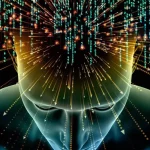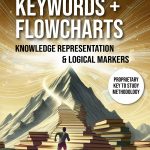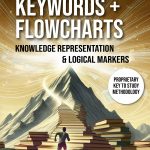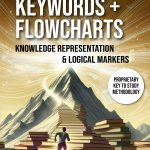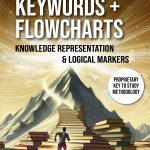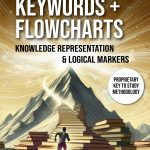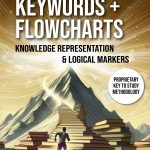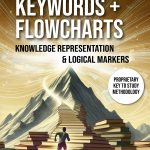Logical markers are very effective used in mindmapping. Another way to look at it is by understanding the way computers process information: both in compilers and in neural networks. There is only one logical marker which I will quote always and use at every opportunity. Happiness = pleasure + purpose. I will use it here …
KeyToStudy Offers:
Memory, Speedreading, and Analysis
KeyToStudy Overview:
Memory, Speedreading, and Analysis
ProlificFocus Overview:
Productivity, Motivation, and Projects
ProlificFocus Offers:
Productivity, Motivation, and Projects
Psychology of Numbers: Why We Feel, Think, and Act Based on Digits
Numbers are everywhere. We see them on clocks, price tags, scoreboards, and social media likes. But numbers are more than just tools for measurement. They shape our thoughts, behaviors, and even our emotions. The psychology of numbers goes far beyond math; it’s deeply embedded in how we interpret the world. From sacred geometry to advertising …
Continue reading “Psychology of Numbers: Why We Feel, Think, and Act Based on Digits”
Mental Accounting and Mental Math: Understanding the Cognitive Framework
To attain the best results, resource management—whether it be intangible or tangible—needs a methodical and planned strategy. In order to successfully manage resources and make well-informed decisions, people must employ logical markers and systematic thinking while dealing with difficult situations. Through the organization of knowledge into practical frameworks, this method turns intangible concepts into concrete …
Continue reading “Mental Accounting and Mental Math: Understanding the Cognitive Framework”
Consistency, Completeness, and Decidability: A Deep Dive into Mathematical Frameworks
For many years, mathematics has been the language of precision and logic, providing instruments to address issues in a variety of fields. Mathematics influences contemporary innovation and decision-making in a variety of ways, from its use in encryption to the design of data quality measures. Its underpinnings are not without difficulties, though. A deeper investigation …
The Dynamics of Serendipity and Luck
Many people believe that serendipity and luck are enigmatic phenomena that benefit a select few. Nonetheless, they are often the consequence of conscious efforts, changes in perspective, and the capacity to identify and seize chances. This section explores how people can affect their luck by being ready, inquisitive, and receptive to new ideas. Every component …
Why Use Logical Markers: Simplifying Complexity Through Shorthand
The capacity to reduce complicated concepts to clear, understandable frameworks is a crucial competence in the information-rich world of today. In this process, logical markers are a vital tool that help people effectively represent, evaluate, and apply abstract ideas. These markers reduce complex relationships, making them simpler to comprehend and convey, from the symbolic notation …
Continue reading “Why Use Logical Markers: Simplifying Complexity Through Shorthand”
Inference, Graphs, and State Machines: Navigating Complex Systems
Tools that can effectively bridge the gap between precision and abstraction are typically necessary for comprehending complex systems, enabling us to model, forecast, and optimize results. This course examines fundamental ideas including state machines, graphs, and inference; each offers distinct viewpoints and approaches to handling complex issues. These tools are crucial for examining dynamically related …
Continue reading “Inference, Graphs, and State Machines: Navigating Complex Systems”
Flowcharts and Feedback: Harnessing Visual Tools for Complex Systems
Textual analysis and numerical data alone are frequently insufficient to comprehend and manage complex systems. Visual tools like flowcharts and feedback diagrams are now indispensable for streamlining complex procedures and facilitating efficient communication between different fields. These graphic representations aid in capturing the dynamic interactions inside systems, whether they are used in software development, psychology, …
Continue reading “Flowcharts and Feedback: Harnessing Visual Tools for Complex Systems”
Math That Does Not Compute: Exploring the Boundaries of Mathematical Language
Although mathematics is sometimes seen as a strict and unchanging field, it is actually a language that is always changing and intended to express the complexity of the cosmos. It bridges the gap between theoretical concepts and real-world applications while adjusting to the needs of human advancement. Mathematics has undergone constant change to satisfy the …
Continue reading “Math That Does Not Compute: Exploring the Boundaries of Mathematical Language”
IQ and thinking patterns
There are many articles on Quora about smart people thinking differently. Something similar can be found here. Since I have my own opinion on the subject, please allow me to share. Things that work People with very high intelligence will likely have exceptional education – formal or autodidactic. They will probably excel both in math …


